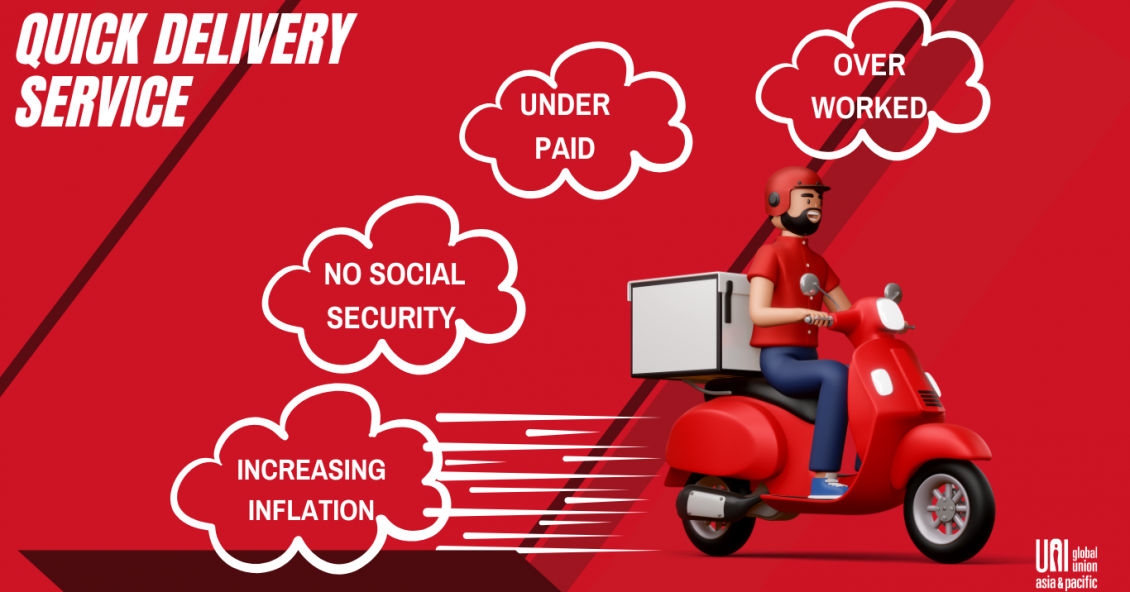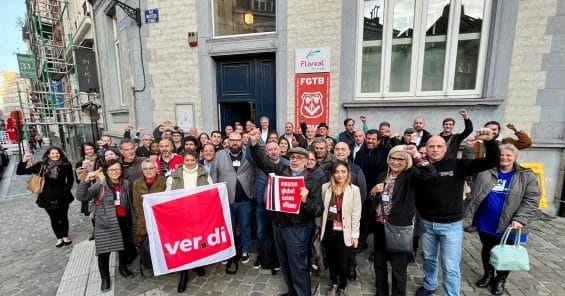THE FACES BEHIND THE RAPIDLY INCREASING DEMAND FOR QUICK-AT-HOME-DELIVERY
07.10.22
Meet Jimmy from Bekasi, West Java, Indonesia. Jimmy is a father of two who works as a service delivery agent in Indonesia. His daily salary for delivering up to 150 packages? US$13 without allowance for food, transportation, or fuel.
“On an average I get US$13 per day but have to shell out around US$1.75 for fuel. The 150 packages that they want me to deliver is barely possible and some days I can’t even get them all out. I am at my wits end, the money I earn is barely enough to live on,’’ said Jimmy.
Jimmy works seven days a week, 12-14 hours per day. He is one of the thousands of gig economy workers in Indonesia who are over-worked, underpaid and are barely keeping afloat in an economic situation with high fuel prices and increasing inflation. He is in debt and a chunk of his salary goes in rent, debt-repayments and school fees for his children.
The onset of COVID-19 impacted people’s health and quality of life and disrupted the national economy and supply chains all over the country. This led to a surge of app-based delivery services and many people relied on delivery agents for food and other necessary commodities. Yet, with a decline in tourists, the purchasing power of consumers declined and many people lost jobs or moved back to their birthplace, leaving the cities of Indonesia. The delivery companies on the other hand increased their functions to remote areas.
“I used to get around US$65 per day, but with the increase in demand and newer app-based companies offering promotions, my per parcel income saw a drastic pay-cut,” said Jimmy.
Indonesia’s minimum wage varies by province, district, and sector. In 2022, the Indonesian Government revised the minimum pay increasing minimum wage in Bekasi City where Jimmy lives from IDR 4,782,935 (US$319) to IDR 4,816,921 32(US$321) per month for a 40-hour week. Yet, the situation for Jimmy and his colleagues is that they are working almost 400 hours per month for around minimum wage, as parcel delivery varies and so does their per-day – per-month salaries.
“I decided that it was unacceptable that I was working almost 400 hours a month, almost two and a half times normal hours for almost a minimum wage. I couldn’t spend any time with my family and for all the hours I work I can barely support them. I decide to join the SPPD union. Now together with my Brothers and Sisters we are growing the union and we are taking up our issues with the Indonesian government,” said Jimmy.
“My family needs me to earn, but with these hours and with this pay its unsafe and unfair; currently I am in a constant physical and mental stress. The SPPD union has given me hope. I would encourage all gig economy workers to join me in the SPPD Union and together we will create a safer fairer workplace for all Indonesian workers,” adds Jimmy.
#WDDW
* The name of the worker has been changed to maintain confidentiality


